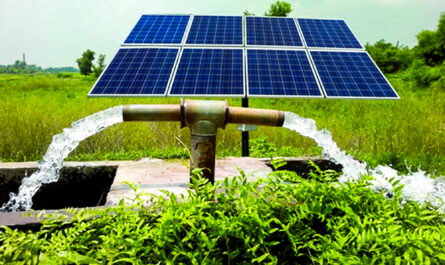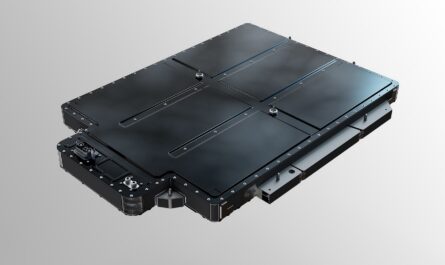Understanding the Need for Backup Power
Reliable access to electricity has become essential in our daily lives. However, power outages can still occur frequently due to various reasons like extreme weather events, accidents, equipment failures or planned maintenance work by utility companies. When the power goes out, it can disrupt everyday activities and cause inconvenience. This is where backup power solutions become important.
Why Backup Power is Necessary
Backup Power Systems ensure that there is always a reliable source of electricity available even during outages. Some key reasons why backup power is necessary include:
Safety: Backup power ensures that essential life safety systems like lighting, fire alarms, security systems continue working during an outage to prevent hazards. Hospitals, nursing homes rely on backup power for critical patient care equipment and ventilation.
Avoid Disruptions: Server downtimes, production stoppages can result in huge financial losses for businesses. Backup power keeps operations running seamlessly during disruptions avoiding such costly impacts. Data centers, manufacturing plants heavily depend on backup power.
Peace of Mind: For households, backup power means essential appliances, refrigerators keep working ensuring food, medicines are not spoiled. Electric garage doors, security systems are also operable providing security during outages.
Compliance: Certain facilities like telecom towers, waste/water treatment plants are often mandated by regulations to have backup power systems in place to function during grid failures. This helps sustain critical community functions.
Types of Backup Power Solutions
Backup power systems come in different varieties to suit various application needs and budgets. The most common types include:
Generators: Fuel-powered generators that run on diesel, natural gas are a popular backup solution for homes and businesses. Portable and stationary generator sizes vary based on the load capacity needed. Fuel has to be stored on-site.
Uninterrupted Power Supply (UPS): UPS systems provide temporary backup power for a few minutes by using an integrated battery. They are suited for devices that need instant protection from voltage fluctuations or very brief outages. Often used for desktop computers, routers.
Backup Batteries: Large stationary lead-acid or Lithium-Ion battery banks can provide backup for hours for critical loads. Often combined with solar panels for off-grid locations, these systems have no fuel requirements.
Portable Battery Packs: Handy mobile charging devices charged by USB that can power smartphones, laptops foremergencies. Car/house battery booster packs are also available.
Factors to Consider While Choosing Backup Power Systems
There are a few important factors to evaluate while selecting the right backup power solution:
Load Requirements: The total power (kW) needed by all loads that need backup determines the capacity of the generator/battery bank required. An assessment is done to size appropriately.
Run Time Needs: How long backup power is essential for – a few minutes, hours or days? This decides battery backup requirements or the fuel tank size for generators.
Installation Location: The location where the system will be installed – indoor/outdoor – influences the generator/battery enclosure specification. Ventilation, noise also impact the design.
Maintenance Needs: Generator systems need routine service/fuel refills. Ease of maintenance is a criteria along with service/repair support availability locally.
Budget: Cost is an important consideration including initial investment and operating expenses over the lifecycle of the backup system.
Environmental Factors: Local climate, ambient temperature range, potential for natural disasters impacts component specifications and durability.
Regulatory Compliance: Systems installed for critical operations need certification approvals for safety compliance as per industry/location standards.
Choosing a reliable supplier with expertise to help assess requirements and recommend the most suitable backup power solution matching specific application needs and budget is important for optimal performance and value. Professional installation and maintenance support also ensures peak performance over the lifespan.
Modern Backup Power Technologies
Tech advancements are transforming the backup power industry with innovative solutions providing even greater reliability, efficiency, and sustainability:
Renewable Integration: Solar generators, solar+battery hybrid systems offer fuel-free power while reducing carbon footprint ideal for remote areas. Microgrids help sustain critical loads.
Intelligent Controls: Advanced monitoring/controls allow remote management of generators, performance optimization, predictive maintenance via internet/mobile apps.
Modular Battery Designs: Scalable modular battery systems optimized for high energy density, fast recharge capabilities, long service life tailored for different applications.
Fuel Cells: Hydrogen fuel cell generators emit only water offering silent, efficient power ideal for noise-sensitive areas may gain wider adoption.
Energy Storage: Large grid-scale battery banks, flow batteries help integrate renewable energy better by absorbing surplus power from sources like solar, wind for use during deficits or outages.
As power needs continue increasing, reliance on the grid deepens further. Adopting capable modern backup power solutions matching requirements ensures business continuity, safety even during toughest of times keeping pace with technology and industry trends. With proper installation, regular maintenance backup power can deliver absolute peace of mind.
Reliable backup power has become indispensable in today’s world where electricity disruptions, even momentary, can cause major damage and losses. While generators continue to be a popular choice, modern options using innovative technologies offer greater efficiency and sustainability. Careful evaluation of application requirements and capabilities of different solutions help select the right backup power system for optimum performance and value over its lifespan. With concerns around climate change and energy security growing, backup power continues evolving to deliver more resilient, eco-friendly alternatives.
Note:
1. Source: Coherent Market Insights, Public sources, Desk research
2. We have leveraged AI tools to mine information and compile it




